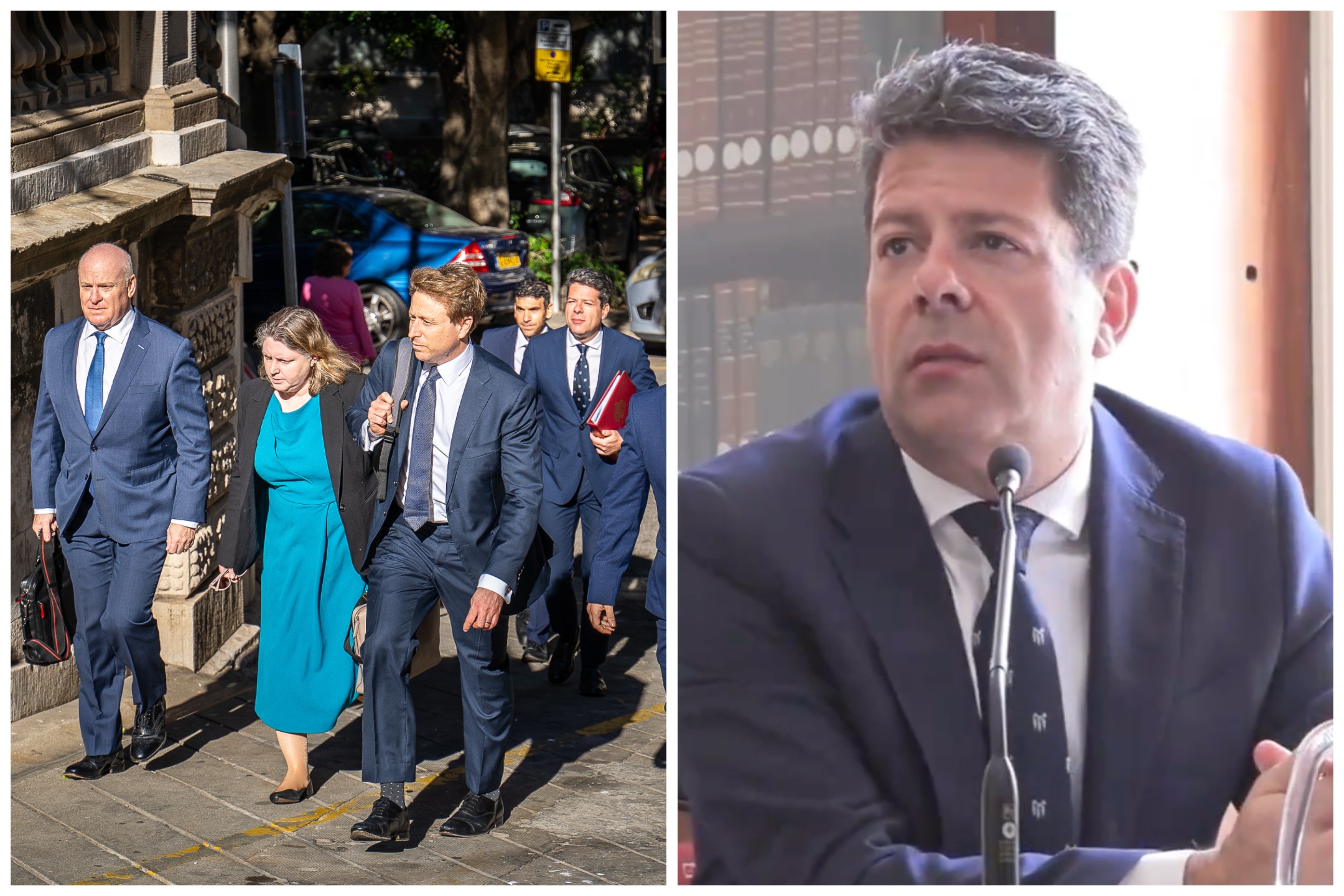By Walter Finch at the McGrail Inquiry
FABIAN Picardo said he did not need a minor stake in a company at the heart of the McGrail inquiry because ‘I am wealthier than I ever wanted from my work as a lawyer and my salary as Chief Minister.’
It was one of his few candid admissions on the most hotly anticipated and talked about day of the McGrail Inquiry.
A string of highly-regarded barristers had lined up to take aim at Gibraltar’s Chief Minister after nearly six weeks of hearings.
But in the end the word on everyone’s lips was ‘filibuster’ (or the tactic of giving long answers to run down the clock) as Picardo brushed off many of the slings and arrows.

A series of seemingly-incisive questions were met with endless word salad responses and rhetorical questions.
Counsels representing the inquiry itself, the Royal Gibraltar Police and former Commissioner of Police Ian McGrail found themselves up against a head of government and a King’s Counsel on sabbatical from Hassans, Gibraltar’s largest law firm.
The inquiry heard that Picardo was outraged at the search warrant issued against his ‘close friend and mentor’, Hassans senior partner James Levy, without actually having seen the police’s underlying evidence.
It was the search warrant on Levy on May 12, 2020, that had set events in motion which would see McGrail retire four weeks later amid allegations of ‘corruption at the highest level of government’.
“You were upset about a close friend being uncomfortably disturbed and, without actually seeing any evidence or information, you took it upon yourself to question something you had no evidential knowledge of,” Nick Cruz, representing the Royal Gibraltar Police, put it to the Chief Minister.
“Absolutely not,” Picardo hit back. “That a friend might be uncomfortably disturbed is absolutely irrelevant.
“I had a view and the view I had was not based on that evidence, it was based on my view of how you would deal with an individual who holds privileged material in relation to others.”

That privileged information was stored on Levy’s phone, which the police confiscated when they went to his offices on the day of the search warrant.
But Picardo denied he was concerned about the RGP having access to his own Whatsapps with Levy nor what they might reveal.
“They’re subject to privilege,” he said. “They’re my private conversations – I might be talking to him about matrimonial difficulties. That doesn’t mean I was worried or concerned.”
Picardo previously described Levy as Gibraltar’s ‘biggest rain maker’ who brought wealth to the economy through his many ‘high net worth’ clients.
Recently published data from the EU’s Tax Observatory perhaps explain why Picardo was so keen to safeguard the privileged information of these wealthy individuals.
According to renowned international tax expert Gabriel Zucman, €78 billion in corporate profits were booked in Gibraltar by US companies alone in 2021 – twice as much as in Germany, France, Italy and Spain combined.
The figures come as the inquiry tried to probe the apparent inappropriateness of Picardo’s assistance towards Levy and his old comrades at Hassans in their battle with the RGP.
It was put to him that it was an ‘inconsistent position’ for a Chief Minister to take once he understood that Levy was a potential ‘suspect in a criminal investigation’.
“There was also an inconsistency in what I was told by the Commissioner of Police,” Picardo retorted.
He repeated his key allegation that McGrail had lied to him about whether Christian Rocca, the Director of Public Prosecutions, had endorsed the decision to use a search warrant against Levy, as opposed to a less invasive production order.
Picardo had asserted that McGrail had told him in a stormy meeting on the same day his officers were attempting to execute the warrant that ‘the DPP advised that we should go by way of search warrant.’
The Chief Minister then claimed that Rocca had in fact ‘strongly advised McGrail against’ a search warrant, sensitive information that he later shared with Levy’s lawyer and son, who both worked for Hassans.
This was later found to be ‘erroneous’, with Rocca himself refuting it, telling the inquiry that he had made no recommendation on the search warrant either way.
Yet the phrase found its way into a letter from Hassans to the RGP threatening a judicial review of the search warrant that very same day.
When quizzed on passing on the erroneous but sensitive information to Hassans, Picardo demurred and clarified that he did not ‘tell Hassans’ but that he told ‘[lawyers] at Hassans’.
In the event, they passed the information on to Levy, who at that time Picardo knew was a ‘suspect in a criminal investigation’.
The Chief Minister justified it by explaining that the DPP, Christian Rocca, had ‘broken the circle of trust’ within the prosecutor’s office by sharing it with the executive office, of which he was the head as Chief Minister.
“If something is not expressly stated in confidence, then it is not in confidence,” he argued.
He also claimed he had been sharing the information with ‘all and sundry’ as it was ‘an important issue in town.’
It was left to Sir Peter Openshaw, the inquiry chair, to point out the Chief Minister’s own logic.
“Let’s say there’s a terrorist shooting. That would be an important issue in town, and the DPP tells the Attorney General his advice on the matter in your presence.
“Your justification for publicising it would be that it’s an important issue in town, and that can’t be right.”
Picardo flatly denied further allegations that he had ‘encouraged, supported or otherwise promoted Mr Levy’s claims against the RGP’.
Instead he described the help he offered to Hassans lawyers as ‘discussions with friends’ and not ‘legal advice’.
“This was far too serious for me to take the view that I could have given them detailed legal advice,” he added.
The tense, rapid-fire question and answer session was punctuated around midday by the most surreal intervention of the entire six-week inquiry – the sudden appearance of school children from nearby Prior Park in the aisle.
As more and more materialised, even Openshaw was moved to remark that he didn’t think ‘this was a good idea.’
They were followed in by a smirking school teacher who ordered them to spread out among the empty chairs in the audience.
Having been assured that they were all over 14 years old and thus eligible to sit in, Openshaw allowed it.
But when the teacher suddenly pulled them out again 30 minutes later, audience members were left muttering: “Who arranged this stunt?”








